Historys 10 Most Influential Comedians
Suggested by SMSComedy is, well, funny. The genre has changed tremendously since its debut thousands of years ago, moving from the long plays of ancient Greece to the short one-liners of today’s stand-up comedians. But one thing has remained the same through it all: comedy makes people feel good. And sometimes, it brings people to tears with laughter.
Throughout history, there have been a handful of folks who have excelled in the art of comedy. Most of these figures are relatively obscure today, but in their heyday, they were well known as the funny guys in town. These days, our modern sensibilities may shrug off their comedy as unfunny or just plain weird. All the same, these comics should be considered masters. Not only were they genuinely funny (or sarcastic), they also influenced the future of comedy as we know it today. Read over the following list to learn more about the best comedians from the past, and keep in mind that this list does not include any greats who are still living.
10. The Ancient Greeks

Credit must be given to the Greeks for the invention of the comedy genre, at least in the Western tradition. Comedy was one of two great dramatic forms in Greece, the other being tragedy. The exact origins of comedy in Greece are unknown, but by about 500 B.C., the plays had become a part of the Greek lifestyle. There were undoubtedly many great comics throughout the time the Greek culture flourished, but only a few comedians’ plays have survived.
Aristophanes and Menander are two or the most known Greek comics simply because their work has been best preserved.
Later scholars divided Greek comedy into three periods–Old Comedy, Middle, and New. Old Comedy is known today as the time of Aristophanes. It was dominated by political satire and sexual innuendos, and its influence can still be felt today in the comic antics of this nature. Middle comedy was not well preserved, but seems to have been a time of increased literariness in the field. Political humor became less pronounced during the middle period. Finally, New Comedy took advantage of situational humor–when things do go according to plan– and was a huge influence for later Western literature.
Modern readers might not find Greek comedy at all funny, but at the time, it was serious entertainment. So for their humor–even if outdated–and their legacy, Greek comedians deserve a place among history’s all-time best funny guys.
9. Frank Fay (1897-1961)

You might not have heard of him, but most people agree that American Frank Fay was the founder of stand-up comedy as we know it today, a type of entertainment that has since become the ultimate venue for comedians. As the master of ceremonies at an early Broadway theater, Fay was one of the first comedians to make spontaneous jokes directly to the audience. Never before had a funnyman acted without the “screen” of another player. Later comic greats, like Jack Benny, were heavily influenced by Fay’s spur-of-the-moment style of comedy. Throughout the late teens and early 1920s, Fay was vaudeville’s stand-up comedy king.
Unfortunately, Fay’s career tanked after he tried to transition to films. He has a few early successes singing in comedic musicals, but never became a star of the silver screen. Still, his early influence in the stand-up realm leave him deserving of recognition.
8. Jonathan Swift (1667-1745)

Jonathan Swift was the king of satire.
Jonathan Swift is considered by many to be the premier satirist of the English language. His deft mocking of the social problems of 18th-century Ireland and England earned him a reputation as a master comedian, although one who appealed to a more intellectual crowd. Swift’s work is all funny, but it had a purpose beyond simply entertainment; he was out to change the world through comedy. His work is both extremely humorous and intensely critical of society, and he hoped that drawing attention to Europe’s problems through satire would help make a difference.
Swift is most known for Gulliver’s Travels, a satirical novel about human nature, and A Modest Proposal, a pamphlet that mockingly suggests eating children will solve Ireland’s problems. Both of these works continue to be read to this day, and they’re both still entertaining.
7. Emmett Kelly (1898-1979)

Emmett Kelly’s son, Emmett Jr., took on the role of hobo clown like his father.
Emmett Kelly was an American circus performer who first created the now-iconic hobo clown character that now is a part of every circus troupe. Kelly began his life in the circus as a trapeze artist, but moved to clowning full time in 1931. At first, he was a traditional white-face clown, performing slapstick comedic routines for a few laughs. But Kelly had dreams of beginning something new in the clown world. He sketched out a hobo character who he named “Weary Willie,” based on a compendium of Depression-era homeless people.
Willie was a sad little man who would follow the circus looking for work and creating mischief. At first, the circus master who directed Kelly wouldn’t allow him to act as Weary Willie, but eventually, he gave in. Kelly performed as Willie with the Ringling Brothers Circus from 1942-1956, and the act was very popular from its beginning.
Weary Willie was a funny clown, but he was also sad. As part of his act, Kelly (as Willie) would often stay behind the circus performers, trying to “clean up” the spotlights on the floor. The pitiable-yet-funny style of clowning was revolutionary at the time, and it has since become popular with circuses everywhere. Hobo clowns and other similar types are now the most popular clowns in American circus troupes.
6. Voltaire (1694-1778)

Voltaire was famous for his wit.
Voltaire was an Enlightenment French thinker who was famous for his biting wit. Born Francois-Marie Arouet, he took the pen name “Voltaire” after being incarcerated in the Bastille. He wrote works in practically every literary genre over his lifetime, including several plays and essays and more than 2,000 books and pamphlets.
Voltaire often used humor in the form of satire to criticize French institutions and the Catholic Church. Because of his outspoken, scathing perception of these powerful entities, he was not very well liked in his day. But Voltaire’s ideas helped set the foundations for both the French and American Revolutions. And along the way, he wrote some pretty funny one-liners too. Candide is probably the most known showcase of his wit; that book attacks optimism through a laughable situational satire. Although modern readers might not care for Voltaire’s humor, like Jonathan Swift he paved the way for later satirical writers.
5. Mark Twain (1835-1910)

Samuel Clemens, better known by his pen name Mark Twain, is lauded as one of the best novelists ever. But he was also a skilled humorist. Twain’s early writings were dominated by humor, and his slightly edgy wit can be seen threaded through all of his later work as well. Some critics regard Huckleberry Finn as not only a masterpiece of a novel, but also a stunning work comedy. And as a master of dialects, Twain’s jokes were often subtly poking fun at colloquial ways of life.
Today, Twain is recognized as a pioneer in American humor. Many comedy awards are given in his honor every year, the Mark Twain Prize for American Humor being one of them.
4. Ben Jonson (1572-1637)

porary of Shakespeare, and although he is not well known today, during his time he was arguably just as popular as his now more famous counterpart. Unlike Shakespeare, whose tragedies are considered most masterful, Jonson was king of the comedy. And Jonson’s comedies weren’t just sappy love stories with happy endings. They were filled with slapstick-style, sometimes vulgar humor that appealed to ordinary people. Jonson is best known for his city comedies like Volpone and The Alchemist, which are satirical looks at life in the emerging Renaissance cities.
Jonson’s comic style was appreciated during his lifetime, but its vulgar and farcical nature declined in popularity in the Victorian era. Still, he was a huge influence on later playwrights and poets in London. In recent years, many of Jonson’s plays have been revived for new audiences. Just like is his time, they’ve gotten big laughs.
3. The Three Stooges

No one did slapstick like the Three Stooges. Their act is still one of the most recognized comedy routines in history, made famous through short films and the television shows that are still rerun today. Throughout the first half of the 20th century, the Three Stooges thrilled audiences with their absurd storylines and spot-on one-liners.
Although Larry, Moe, and Curly are best known as the troublesome threesome, there were, in fact, eight stooges who performed at different times. Moe Howard and Larry Fine (whose real names were Harry Moses Horowitz and Louis Feinburg) stuck with the Stooges throughout their existence, but multiple actors played the third character. The two most famous third Stooges were Curly Howard and Shemp Howard, both brothers of Moe. It was the original trio of Larry, Moe, and Curly, however, who made the Three Stooges part of comedy history.
Nowadays, the Stooge enterprise still enjoys rampant popularity. DVD collections of the Three Stooges television shows and movies have been released, and, in 2004, a Stoogeum was built commemorating the act in Spring House, Pennsylvania. And the act will live on, albeit with different actors; a new Stooge film is expected to be released in 2010.
2. Lucille Ball (1911-1989)

I Love Lucy remains one of the best-love comedies on television.
Lucille Ball created a television dynasty with her signature style of face-making, wily comedy. She had one of the longest reigning Hollywood careers ever, starring in four sitcoms over 30 years. Without a doubt, I Love Lucy is what she’s most known for today, and for good reason. The show, which also starred Ball’s then-husband Desi Arnaz, was the top-rated TV program for the majority of its run from 1951 to 1960. And it got big laughs. Filmed in front of a live audience, I Love Lucy’s laugh tracks were sometimes so long that they had to be edited out. She was truly one of the funniest comics every to perform.
In addition to Ball’s three other television series, she also starred in multiple films and a Broadway play, Wildcat, which received much critical acclaim. Ball received many awards for her life work in comedy, including some posthumous recognitions like the Presidential Medal of Freedom, which was given to her after her death in 1989.
To this day, I Love Lucy continues to be successful in syndication. And although she died nearly 20 years ago, Ball remains one of the most recognizable television personalities around. She deserves her place and one of comedy’s most influential stars.
1. Charlie Chaplin (1889-1977)

Charlie Chaplin paved the way for comedy to hit the big screen.
Charlie Chaplin was an English star of comedy. He is best known for his silent comedy routines from the films of the 1920s, but he continued to act, direct, produce, and compose until late in his lifetime. In many ways, Chaplin was the biggest star of his day. He continues to be lauded as one of Hollywood’s greatest actors, and his work in comedy is what makes him most famous.
Chaplin’s signature character was “The Tramp,” a hobo with exceptional manners who winds up in slapstick-comedy situations. The character was a hallmark of the silent era of film. But not all of Chaplin’s films included the Tramp character, and he was equally funny out of that icon’s baggy pants and bowler hat. Still, the bumbling, ridiculous Tramp character continues to thrill audiences and remains the most lasting memory of Chaplin’s comedy.
Chaplin’s comedic legacy in film opened doors for the big-screen comedy that’s so popular today. He made comedy a medium for the big screen, and for that, he is history’s most influential comedian.
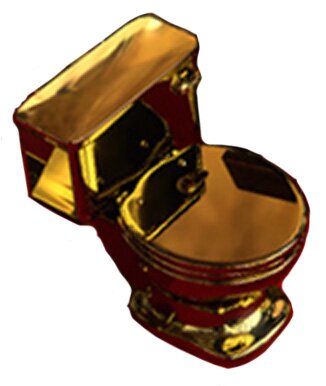
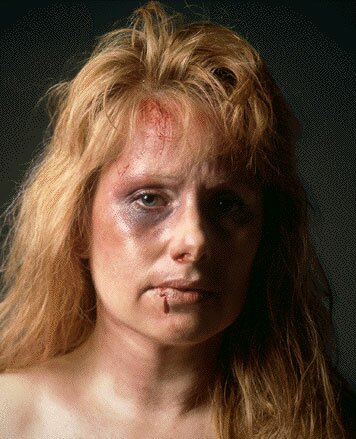
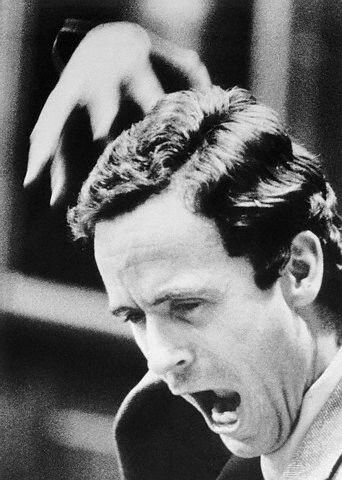

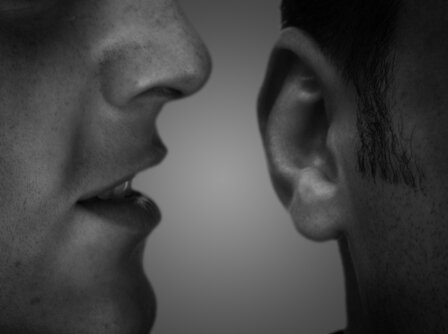

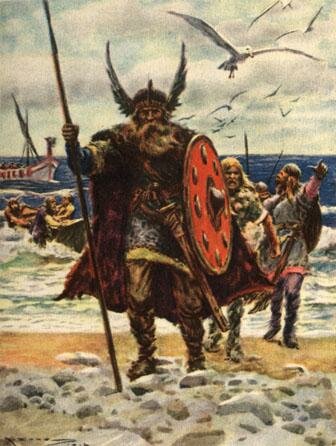



You really should have George Carlin in here